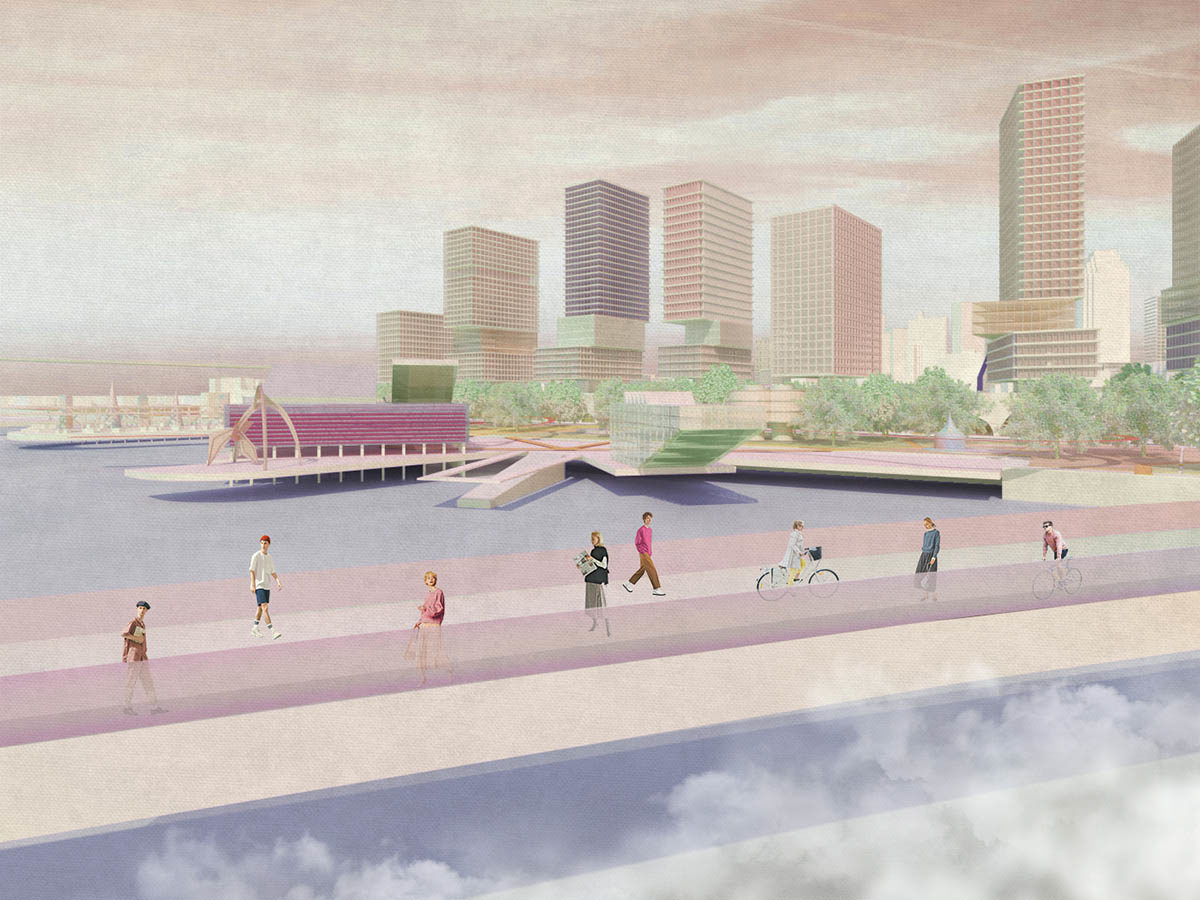Summer Peer-Learning Sessions

Initially conceived as a direct response to abrupt decreases in professional opportunities for summer 2020, this project is a reflection of the culture of peer-learning in design education. Survey results identified interest in both software-based digital skills as well as analog explorations.
Summer Peer-Learning Sessions are a student-initiated, student-led learning series funded by the GSD Participatory Budgeting Project’s Covid-19 Response (supported by the GSD Healthy Places Lab and GSD Office Student Affairs). The project was formed specifically to address changes in student learning caused by COVID-19’s interruption of traditional internships and as an effort to supplement interrupted opportunities for working, learning, and interacting during Summer 2020. With an emphasis on technological skills, the project surveyed and identified areas that were of high interest to the student body as well as immediately deployable as digital design tools, and matched student instructors to those skills based on survey response. Available funds were then distributed to instructors to support robust learning opportunities.
Sessions Available:
Sketching: Synthesis as Process
One’s ability to combine and organize scattered, contrasting elements to one, indivisible whole is what we define as a synthesis. It is a process that does not evolve linearly, but dynamically and unpredictably; aiming at maintaining a balance. It is the process of how initial thoughts, desires, stimuli, experiences, references, images, etc. are harmonized into a main and abstract idea that will later find its final form through a process of constant doubts, back and forths, and iterations. These are the core concepts of architectural composition that we will try to investigate in the proposed summer workshop, Synthesis as Process: From Sketch to Final Project. The workshop will last one week and it will be divided into two parts: a lecture-based section and a work-based section. In the former, pieces of our previous research interests on the process of creation from various artists and architects will be presented as precedents, specifically looking at how they use their tools to achieve their final projects. In the latter section, we will attempt to apply these concepts through vague sketches and models, providing the students with a more holistic approach of thinking using a variety of tools.
Instructors: Alkiviadis Pyliotis, Evangelos Fokialis
Schedule: 07/27, 07/29, 07/31; Lectures: 12:00 – 1:30 pm EST; Working Sessions: 2:00-4:00 pm EST
Signup linked HERE
Past Sessions:
Rendering
This course will focus on revisiting past work as a way to examine choices of representation in rendering. The course provides a beginning-to-end workflow for making renderings, with an emphasis on tricks for efficient production on a studio timeline. The primary focus will be on a V-Ray to Photoshop workflow, with support available for other methods, such as Enscape and composite and hand-rendering, based on student interest. The course will emphasize direct problem-solving and interaction through desk crits and instructor office hours.
Instructor: Milos Mladonevic
Support Instructor: Pietro Mendonça
Schedule: Weekday Evenings (EST), June 22nd – July 3rd
Digital Sketching
The digital sketch is fast and sloppy, it facilitates ideas and does not force their immediate resolution. This course introduces software in the context of the digital sketch and asks participants to think creatively about the design of drawings using composite methods informed by digital and physical sketching techniques. The goal of the course is to foster discussion and experimentation relating to the changing modes of making required by increasingly digital communication. We will aim to challenge conventional methods of digitally sketching as a purely documentary or aesthetic mode of representation in favor of its productivity as a design method. No prior software knowledge is necessary. The course will be delivered as a mixture of lecture, tutorial, desk crit, and discussion, with opportunities for small group work if desired.
Instructor: Ashley Hickman
Schedule: June 23rd and 25th, 7pm EST; June 27th and 28th, 2pm EST
Limited to 30 students
Grasshopper
The course will focus on learning to use Grasshopper for geometric form finding and effects through the production of frame animations. We will begin with short exercises to understand the basics of the interface, options for representation, and other potentials of the software. Guided individual assignments will follow each lecture/workshop and will result in each student producing a set of unique GIF animations using new skills and techniques. Open to beginners, the goal will be to master the software enough to be able to execute creative decisions while building scripts. The animations will be collected on a shared platform to facilitate discussion and collaboration.
Instructor: Claire Djang
Support Instructor: Tara Oluwafemi
Schedule: Monday, Wednesday, Friday (EST), July 6th – July 17th
Limited to 24 students, sign-up linked HERE
Home Concept Models
The concept model is a physical diagram of a relationship. It communicates both symbolically and through its material and composition. This workshop will mimic the very beginning of a studio project, when ideas are fresh and unrefined. We will take a brief and practice communicating with each other using quick and dirty models (made at home) paired with written statements and verbal presentation. This workshop will go over techniques for making concept models in your kitchen—with wax, spices, clay, eggs, silicone, (and anything else in the cupboard) and figuring out how to best leverage them over zoom. Participants will make a physical model out of whatever materials are available to them after the first meeting and discuss it with the group at the second session. Desk crits will be available in between sessions.
Instructor: Cara Roberts
Schedule: Monday, July 6th, and Wednesday, July 8th, 2pm EST
Limited to 15 students, sign-up linked HERE